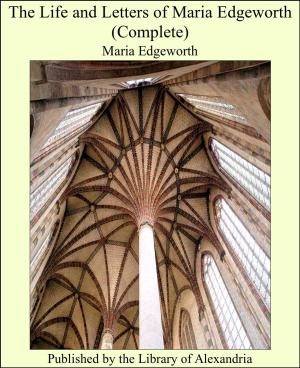The War of Women (Complete)
Nonfiction, Religion & Spirituality, New Age, History, Fiction & Literature| Author: | Alexandre Dumas | ISBN: | 9781465610409 |
| Publisher: | Library of Alexandria | Publication: | March 8, 2015 |
| Imprint: | Language: | English |
| Author: | Alexandre Dumas |
| ISBN: | 9781465610409 |
| Publisher: | Library of Alexandria |
| Publication: | March 8, 2015 |
| Imprint: | |
| Language: | English |
At a short distance from Libourne, the bright and bustling city mirrored in the swift waters of the Dordogne, between Fronsac and Saint-Michel-la-Rivière, once stood a pretty little white-walled, red-roofed village, half-hidden by sycamores, lindens, and beeches. The high-road from Libourne to Saint-André-de-Cubzac passed through the midst of its symmetrically arranged houses, and formed the only landscape that they possessed. Behind one of the rows of houses, distant about a hundred yards, wound the river, its width and swiftness at this point indicating the proximity of the sea. But the civil war passed that way; first of all it up-rooted the trees, then depopulated the houses, which, being exposed to all its capricious fury, and being unable to fly like their occupants, simply crumbled and fell to pieces by the roadside, protesting in their way against the savagery of intestine warfare. But little by little the earth, which seems to have been created for the express purpose of serving as the grave of everything upon it, covered the dead bodies of these houses, which were once filled with joyous life; lastly, the grass sprang up in this artificial soil, and the traveller who to-day wends his way along the solitary road is far from suspecting, as he sees one of the vast flocks which one encounters at every turn in the South cropping the grass upon the uneven surface, that sheep and shepherd are walking over the burial-place of a whole village. But, at the time of which we are speaking, that is to say about the month of May, 1650, the village in question lay along both sides of the road, which, like a mammoth artery, nourished it with luxuriant vegetation and overflowing life. The stranger who happened to pass along the road at that epoch would have taken pleasure in watching the peasants harness and unharness the horses from their carts, the fishermen along the hank pulling in their nets wherein the white and red fish of the Dordogne were dancing about, and the smiths striking sturdy blows upon the anvil, and sending forth at every stroke of the hammer a shower of sparks which lighted up the forge. However, the thing which would most have delighted his soul, especially if his journeying had given him that appetite which has become a proverbial attribute of travellers, would have been a long, low building, about five hundred yards outside the village, a building consisting of a ground-floor and first floor only, exhaling a certain vapor through its chimney, and through its windows certain odors which indicated, even more surely than the figure of a golden calf painted upon a piece of red iron, which creaked upon an iron rod set at the level of the first floor, that he had finally reached one of those hospitable establishments whose proprietors, in consideration of a certain modest recompense, undertake to restore the vigor of the tired wayfarer.
At a short distance from Libourne, the bright and bustling city mirrored in the swift waters of the Dordogne, between Fronsac and Saint-Michel-la-Rivière, once stood a pretty little white-walled, red-roofed village, half-hidden by sycamores, lindens, and beeches. The high-road from Libourne to Saint-André-de-Cubzac passed through the midst of its symmetrically arranged houses, and formed the only landscape that they possessed. Behind one of the rows of houses, distant about a hundred yards, wound the river, its width and swiftness at this point indicating the proximity of the sea. But the civil war passed that way; first of all it up-rooted the trees, then depopulated the houses, which, being exposed to all its capricious fury, and being unable to fly like their occupants, simply crumbled and fell to pieces by the roadside, protesting in their way against the savagery of intestine warfare. But little by little the earth, which seems to have been created for the express purpose of serving as the grave of everything upon it, covered the dead bodies of these houses, which were once filled with joyous life; lastly, the grass sprang up in this artificial soil, and the traveller who to-day wends his way along the solitary road is far from suspecting, as he sees one of the vast flocks which one encounters at every turn in the South cropping the grass upon the uneven surface, that sheep and shepherd are walking over the burial-place of a whole village. But, at the time of which we are speaking, that is to say about the month of May, 1650, the village in question lay along both sides of the road, which, like a mammoth artery, nourished it with luxuriant vegetation and overflowing life. The stranger who happened to pass along the road at that epoch would have taken pleasure in watching the peasants harness and unharness the horses from their carts, the fishermen along the hank pulling in their nets wherein the white and red fish of the Dordogne were dancing about, and the smiths striking sturdy blows upon the anvil, and sending forth at every stroke of the hammer a shower of sparks which lighted up the forge. However, the thing which would most have delighted his soul, especially if his journeying had given him that appetite which has become a proverbial attribute of travellers, would have been a long, low building, about five hundred yards outside the village, a building consisting of a ground-floor and first floor only, exhaling a certain vapor through its chimney, and through its windows certain odors which indicated, even more surely than the figure of a golden calf painted upon a piece of red iron, which creaked upon an iron rod set at the level of the first floor, that he had finally reached one of those hospitable establishments whose proprietors, in consideration of a certain modest recompense, undertake to restore the vigor of the tired wayfarer.















